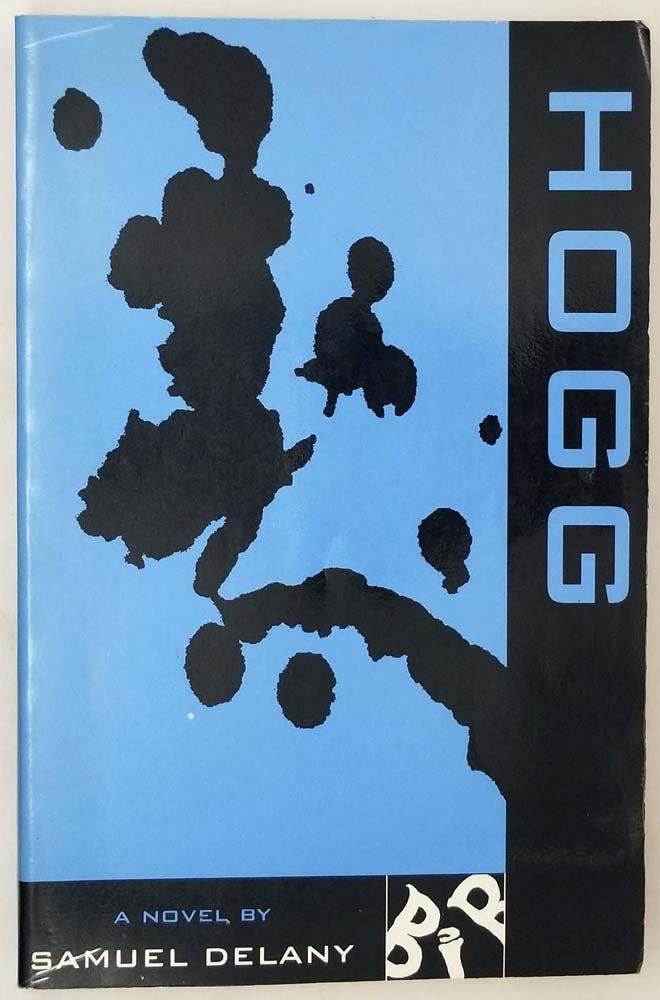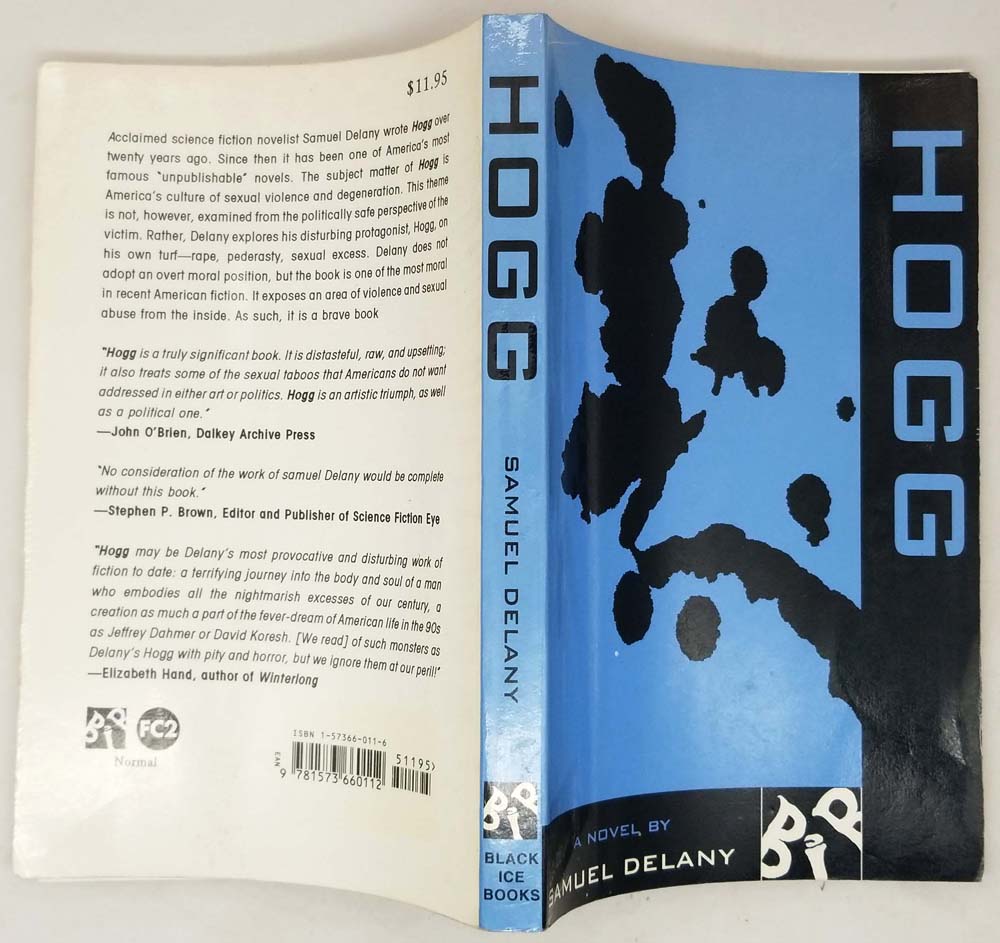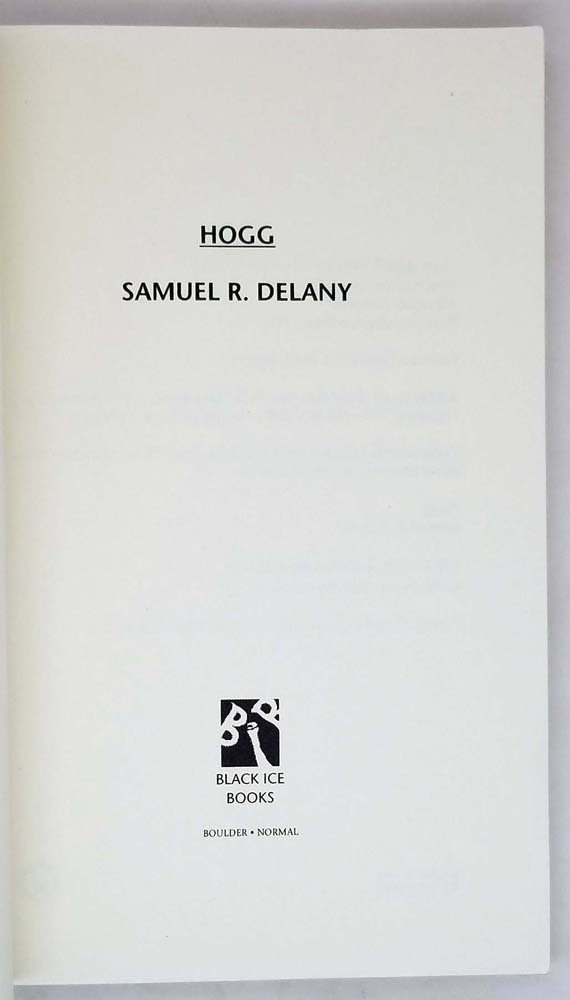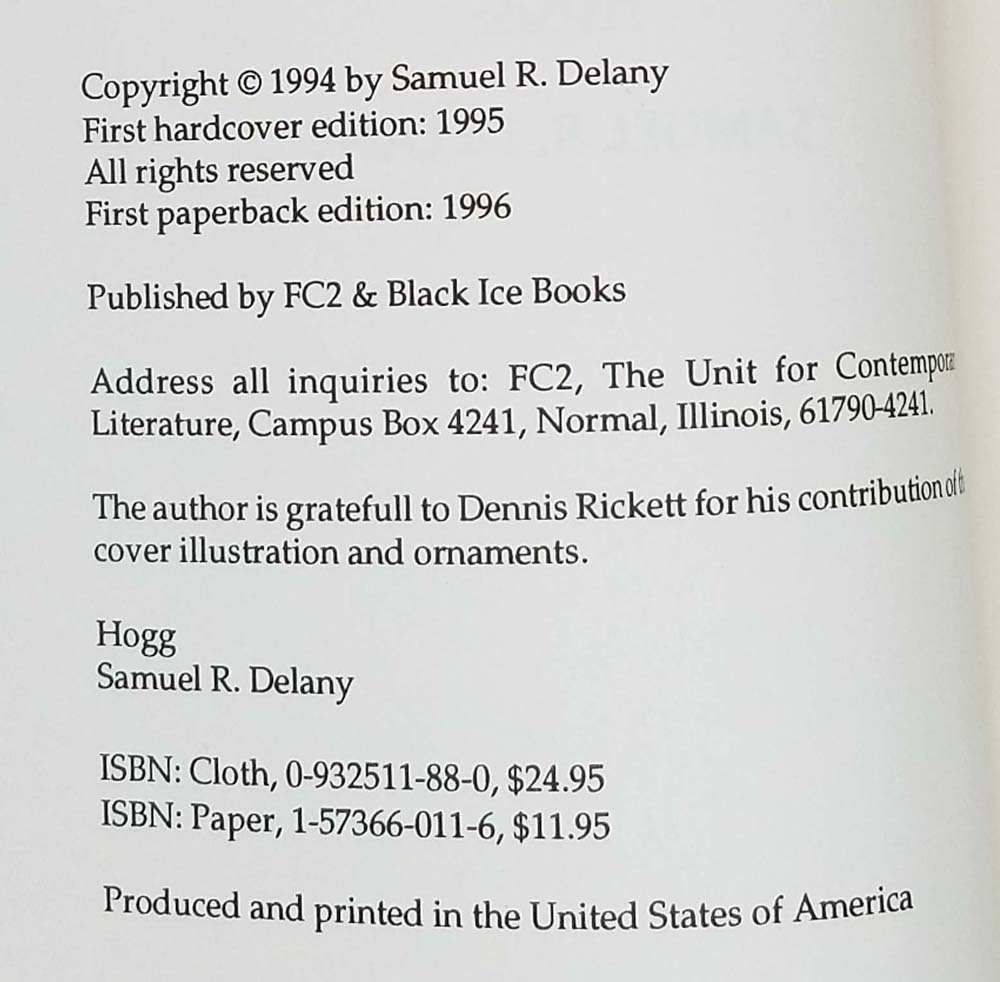Hogg by Samuel R. Delany (written in 1969, published in 1995) is one of the most controversial and transgressive works in American literature—a brutal, unflinching exploration of violence, power, and sexual extremism. The novel follows an unnamed, pre-adolescent boy who is abducted and initiated into the world of Hogg, a monstrous, illiterate rapist and enforcer who operates on society’s bleakest margins.
Set in a nameless waterfront city, the story unfolds through graphic, often grotesque scenes of degradation, including sexual violence, pedophilia, and bodily filth, all narrated in cold, clinical detail. Delany’s intent is not titillation but a radical confrontation with taboo, forcing readers to grapple with the raw underbelly of human desire and the limits of literary representation.
A challenging, polarizing work, Hogg has been called both a masterpiece of underground fiction and an exercise in obscenity. It reflects Delany’s broader preoccupations with marginalized identities and the politics of transgression, though it stands apart from his acclaimed sci-fi (Dhalgren, Nova) in its relentless nihilism.









